Sarrah Nomanbhoy: 'We need to amplify the voices of those who aren't being heard'
Next in our Women Who Win series is Sarrah Nomanbhoy, founder of Marhub International, an organization that uses Messenger from Facebook through its chat bot ‘Mona’ to help forced migrants rebuild their lives
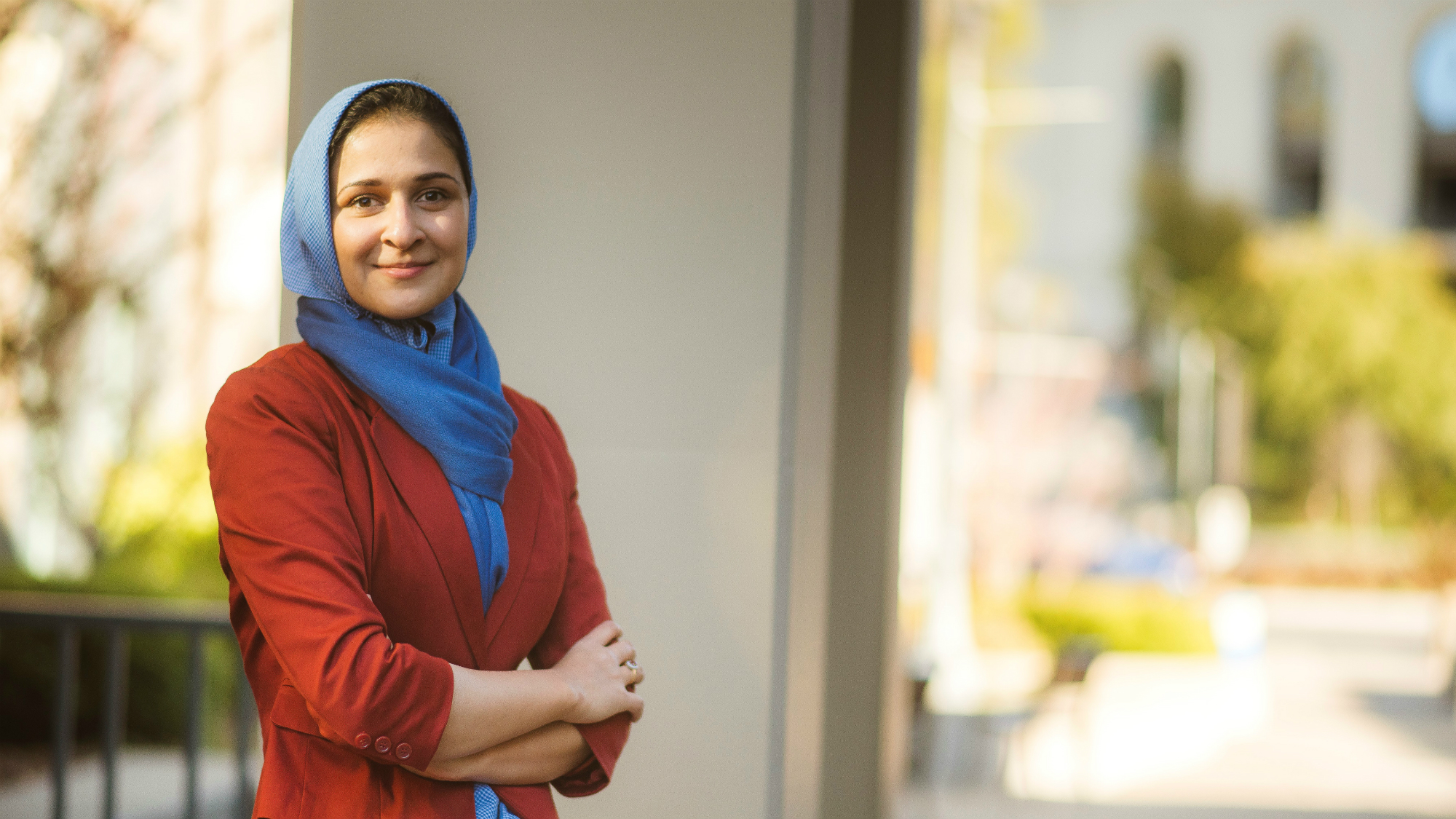

Next in our Women Who Win series is Sarrah Nomanbhoy, founder of Marhub International, an organization that uses Messenger from Facebook through its chat bot ‘Mona’ to help forced migrants rebuild their lives
Can you imagine being forced to flee your home and start over again in an unknown territory, where nobody speaks your native language? Add to the equation the inability to get answers to fundamental legal questions, and a painful situation is made even more isolating. This remains a reality for millions of migrants today. With humanitarian organisations so outstretched that it can take as long as three months to answer individual queries, many refugees are left on their own to navigate the tricky path to resettlement. Meet Sarrah Nomanbhoy, the tech entrepreneur on a mission to change this.
In 2017, Sarrah founded Marhub International, an organisation that helps refugees find safety and rebuild their lives in new countries. Through its friendly bot ‘Mona’, Marhub provides reliable information and services in the user’s native language. So far, a staggering 13,000 refugees have spoken to Mona on Messenger.
‘I was born in the Silicon Valley to an immigrant family, so migrant stories were a big part of growing up’, says Sarrah. ‘They were often stories of optimism - of people taking risks but being able to create wonderful futures for their families. But I soon realised that most migrants face challenges that my family hadn’t experienced.’
‘There are millions of people stuck in exile and struggling to navigate complicated foreign procedures, just to secure their basic rights and needs. I wanted to make reliable information accessible to refugees – in their own language, on their preferred platform, on their own time.’
Our Women Who Win interview series celebrates inspirational female trailblazers, shaping the future for us all, and Sarrah is most certainly one of them. Her ability to combine entrepreneurial spirit with her passion for migrant rights to provide a platform upon which refugees can freely address their concerns is nothing short of exceptional.
Niamh McCollum sat down with Sarrah to discover how tough you need to be to build a business from the ground up on your own, and how she’s taking on technology to eliminate barriers for refugees worldwide
Marie Claire Newsletter
Celebrity news, beauty, fashion advice, and fascinating features, delivered straight to your inbox!
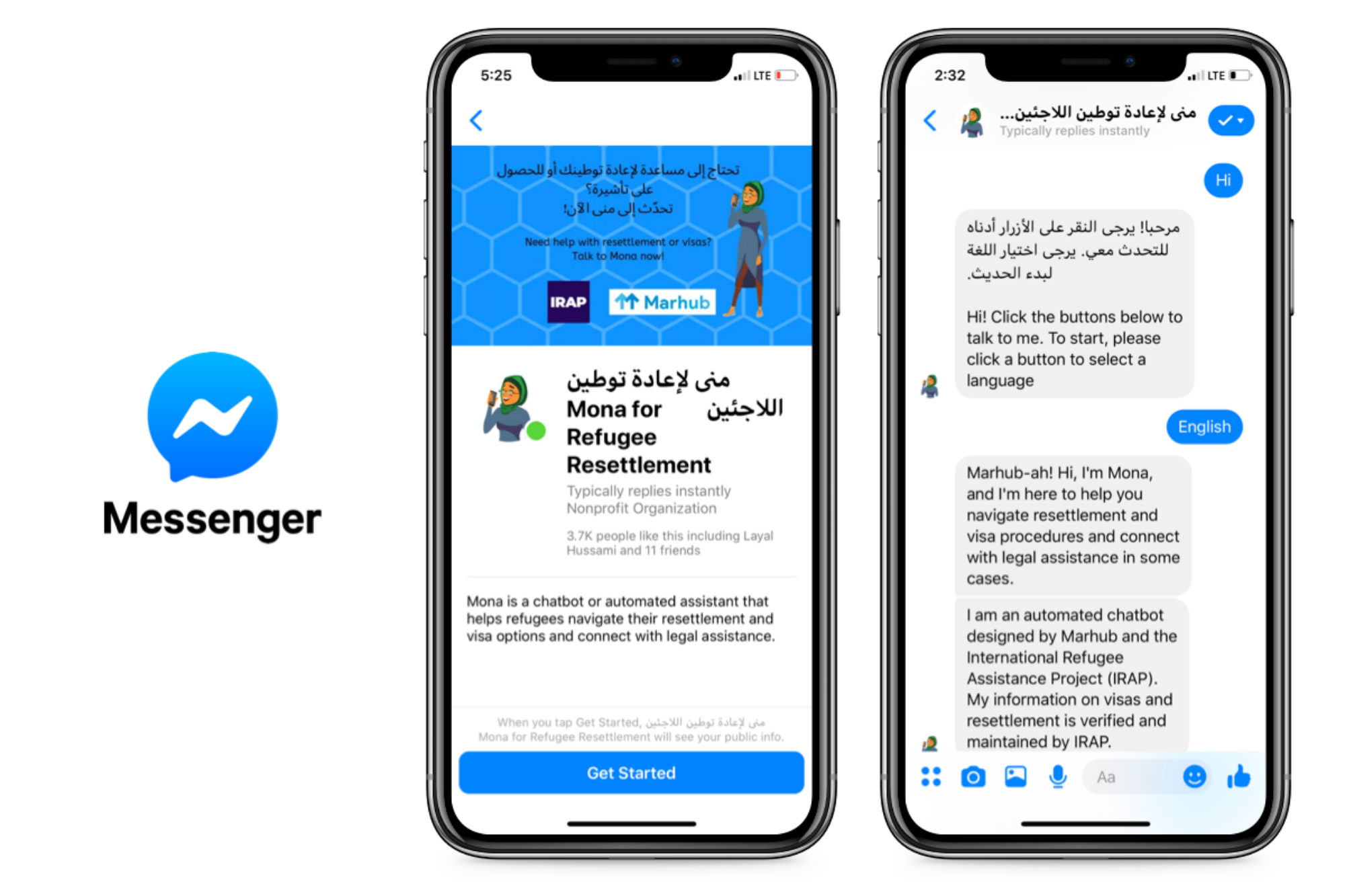
Talk us through your journey
'My passion for international migration issues led me to study International Migration Policy in college. I then did an MBA at Berkeley, where I met my co-founder, Peter. Students like us were fleeing from war and taking huge risks to reach safety. We wanted to understand what was propelling them on these journeys, so we conducted some field research in Greece and Lebanon. We met one refugee in a Greek camp who had travelled from Turkey to get information about treatment for his sick daughter. He emailed three different NGOs, knocked on doors, and sifted through countless Facebook pages to no avail.
Eventually, he resorted to contacting a smuggler over social media. Almost immediately he got a reply: ‘I can take you to Germany where we’ll get treatment for your daughter’. That was a real turning point for us - we thought, ‘wow, after months of trying to get reliable information in this frustrating process, he received a response within minutes.’
We realised this wasn’t a unique story. At the time, there were 60 million people stuck in exile, trying to navigate complicated foreign procedures just to secure their basic rights and needs. Most of the organisations geared towards helping were unable to keep up with this huge demand for services. That’s when migrants were most likely to turn to smugglers and scams - when reliable information and services weren’t accessible.
That’s when we decided to start Marhub. We built a chat bot called ‘Mona’, over Messenger from Facebook, to connect refugees with customised information and assistance through channels they were already using. Meanwhile, we could help organisations more effectively respond to migrant needs, by expanding their reach and collecting user feedback to help improve services over time.'
How many people have used the service so far?
'So far, about 13,000 people who have used Mona – primarily in Jordan, Lebanon and Turkey. One was an Iraqi refugee in Lebanon. He suffered several attacks and had become homeless due to his LGBT status. By describing the attacks he’d experienced, Mona was able to flag him to IRAP because of his vulnerability, they were able to take on his case very quickly.
There are also cases in which individuals can act on the information provided to take steps on their own. We had a Syrian refugee woman who found out that her sister, a US citizen, could actually fill out a very simple set of forms to apply for her to join her in the United States. She actually didn’t need a referral to IRAP at all, but was able to use the tailored self-help information provided through the tool to get started with the process herself.
The idea is about agency – these humanitarian organisations are so overstretched that we want to empower people to pursue these pathways on their own where possible.'
What does a typical working day entail?
'Our team of 12 is distributed in seven different cities around the world, so my day entails connecting and collaborating with those different areas. Because we’re an early start-up, each day involves prioritising and reprioritising quite a bit - there are always emerging needs, and I need to make sure that we’re addressing the most urgent ones.'
What’s the boldest thing you’ve ever done?
'Deciding to work on Marhub full time after graduating from business school was a really scary thing to do. It wasn’t the most traditional path, but I had seen the potential that this project had - and I wanted to give it a fair chance. The scariest part was knowing that I would be the only full-time person on the team initially – my co-founder was still finishing up his degree. But it was in a lot of ways empowering to know that it was all on me to make sure it succeeded.'
What has been your proudest moment?
'After months of developing the chat bot, we got to see how many conversations refugees were having with Mona on our launch day. Watching those notifications pop up was such an incredible feeling. It was so cool to see something, that I just built, working and helping people.'
What do you refuse to compromise on?
'Whatever work I’m doing, it has to be something that I’m passionate about. One of the best decisions I made was listening to this calling that I had to focus on international migration issues. My career was going in a different direction before that, but I realised that the things keeping me up at night were about international migration issues. Being able to spend every day working on a set of problems I care about has been really, really rewarding.'
What is the best advice you’ve ever received?
'If you go to the circus and see an acrobat with a safety net beneath them, you expect them to do the higher jumps and take the bigger risks. As someone with a strong support network and many privileges, this reminded me that I can afford to take a few more risks in life. That’s something that has really stuck with me.'
What is one thing you’d change for women, if you could?
'I wish there was a broader definition of ‘leadership’, and an acknowledgement that there are many different forms of leadership. When I first started working on Marhub, some team members didn’t feel like I had the right qualities and skills to lead a tech start-up. A lot of the examples they gave were the talents of people like Steve Jobs, Bill Gates and Larry Page. Even though those comments aren’t overtly sexist, I realised that those concerns were coming from a place with a very narrow definition of leadership.
I don't have to fit into that mould to be successful in leading an organisation, and I don't need to make everyone happy to move forward. My co-founder, Peter, is very open-minded and aware of these unconscious biases; I think it would be great to see more women have that sort of support.'
What is your mantra?
'I don’t have a specific mantra, but I've often been held back by self-doubt. Whenever I feel like that, I try to repeat phrases like, 'I’ve gotta make this work, I’ve gotta keep going', so despite all of the doubt that I’m feeling, I know that I have to keep going. It’s that grit that allows you to continue overcoming those challenges.'
How do you celebrate success?
'By reflecting on the challenges our team has overcome and seeing how much we’ve learned in the process. We have an incredible team of people who believe in the mission and are tirelessly dedicating their time to it. What’s most inspiring is seeing that group come together – we’ve come a long way from just me sitting alone at home working on this.'
Finish this statement: “Women should…”
'Speak up for themselves and amplify the voices of those who aren’t being heard – and vote! That’s really, really important.'
Niamh McCollum is Features Assistant at Marie Claire UK, and specialises in entertainment, female empowerment, mental health, social development and careers. Tackling both news and features, she's covered everything from the rise of feminist audio porn platforms to the latest campaigns protecting human rights.
Niamh has also contributed to our Women Who Win series by interviewing ridiculously inspiring females, including forensic scientist Ruth Morgan, Labour MP Stella Creasy and ITV’s former Home Affairs Editor Jennifer Nadel.
Niamh studied Law in Trinity College Dublin. It was after enrolling in a Law & Literature class on her year abroad in Toronto that her love of writing was reignited. In no particular order, her big likes are Caleb Followill, hoops, red wine, sea swimming, shakshuka and long train journeys.
-
 How the slogan t-shirt became this season's must-have - and why it's more than just another trend
How the slogan t-shirt became this season's must-have - and why it's more than just another trendNot just another Nineties throwback
By Clementina Jackson
-
 How are Trump’s tariffs affecting the fashion industry?
How are Trump’s tariffs affecting the fashion industry?The fluctuating situation in the US is having very real consequences
By Rebecca Jane Hill
-
 Here's every character returning for You season 5 - and what it might mean for Joe Goldberg's ending
Here's every character returning for You season 5 - and what it might mean for Joe Goldberg's endingBy Iris Goldsztajn
-
 Vitalie Taittinger: ‘I don’t need to turn myself into a man to achieve the same things’
Vitalie Taittinger: ‘I don’t need to turn myself into a man to achieve the same things’Champagne businesswoman Vitalie Taittinger gives us some insight into how tough you have to be to hack it as a woman in the alcohol industry...
By Jenny Proudfoot
-
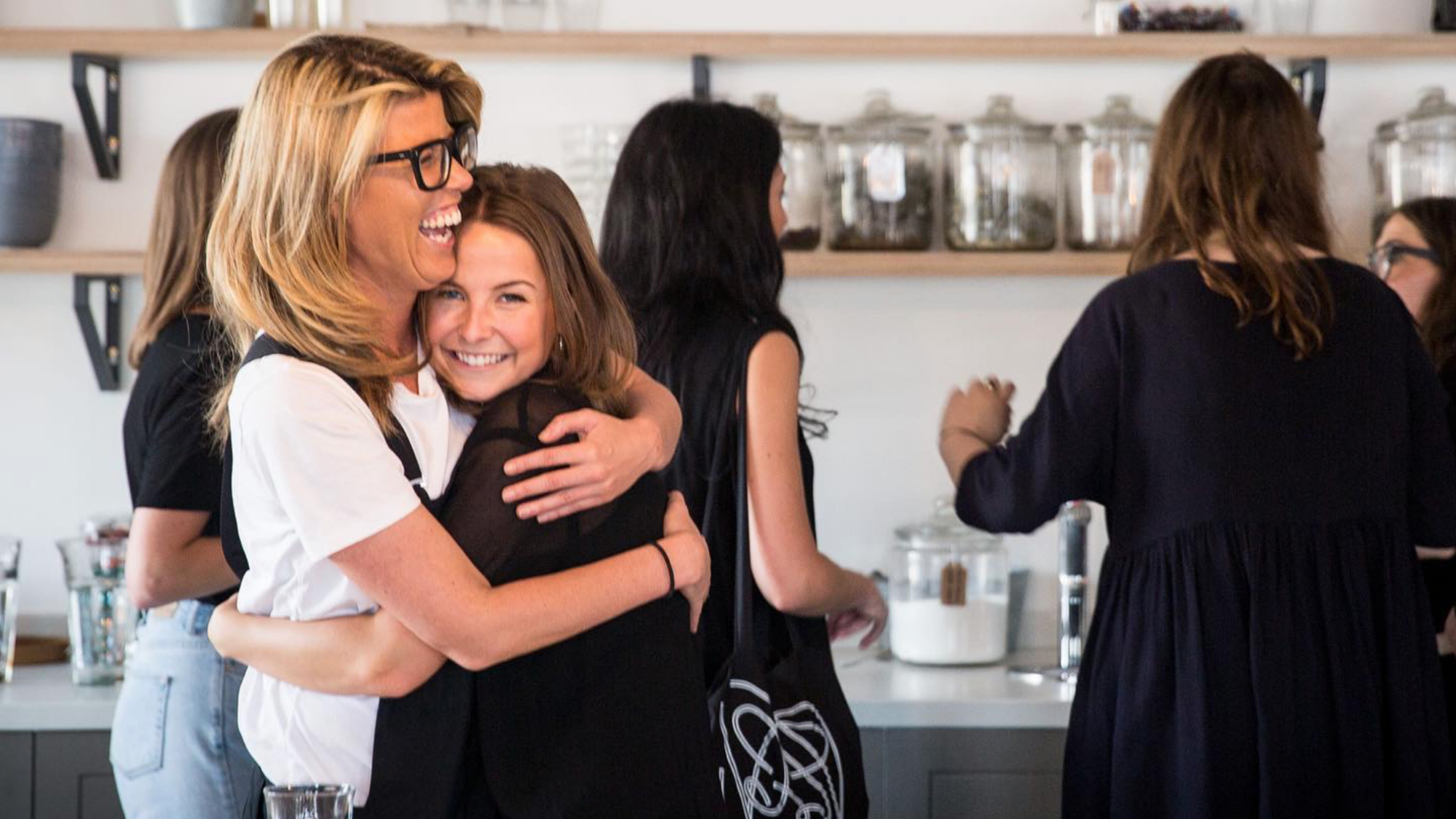 Pip Jamieson: 'There’s a special place in hell for women who don’t support each other’
Pip Jamieson: 'There’s a special place in hell for women who don’t support each other’Female tech founder Pip Jamieson gives us some insight into how tough and resilient you have to be to hack it as a woman in the tech industry...
By Jenny Proudfoot
-
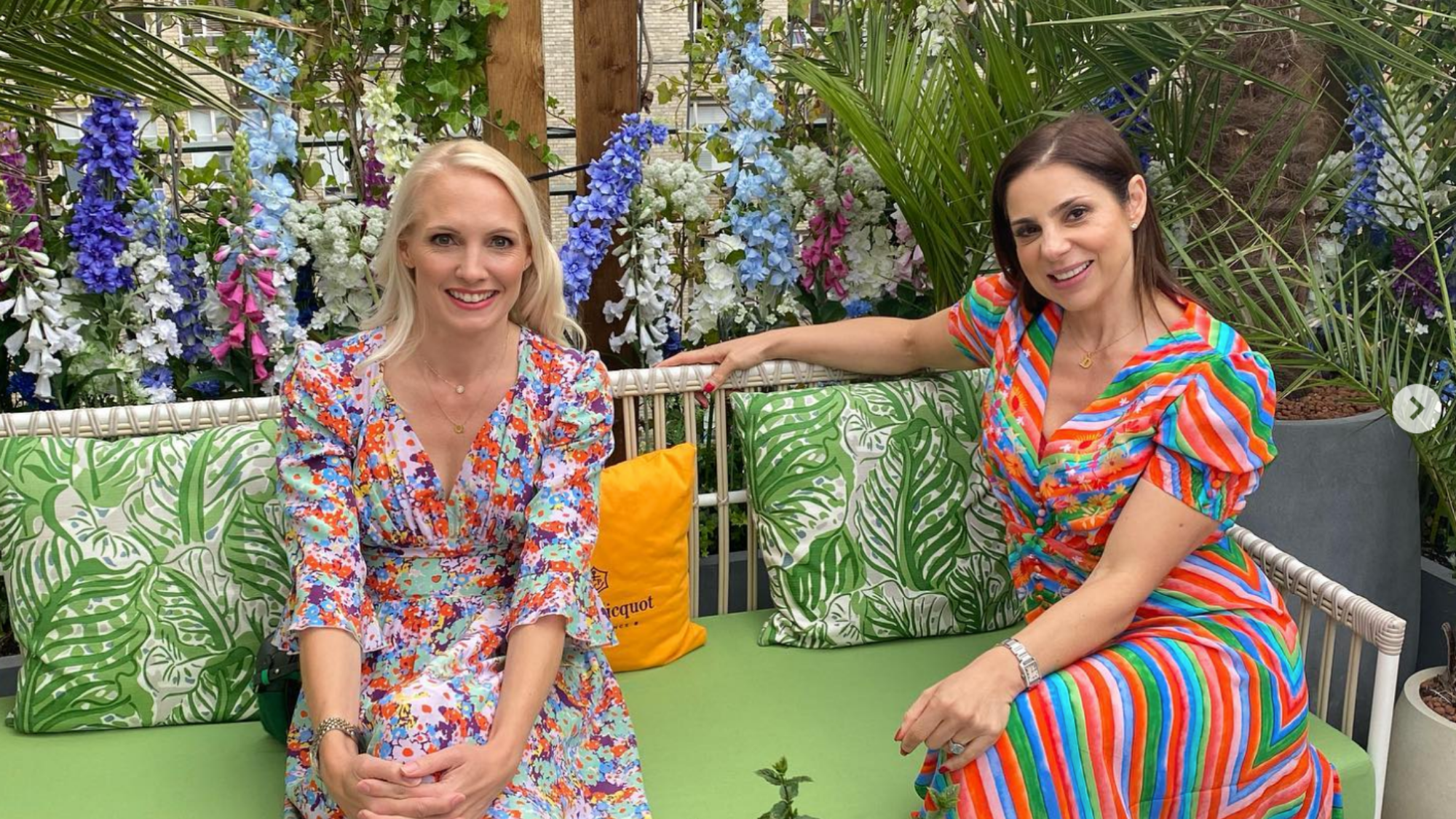 Anna Jones: 'Quite often the only thing holding women back is a belief in themselves'
Anna Jones: 'Quite often the only thing holding women back is a belief in themselves'This International Women's Day, Female founder Anna Jones is giving us some insight into getting to the top and why we should be supporting each other...
By Jenny Proudfoot
-
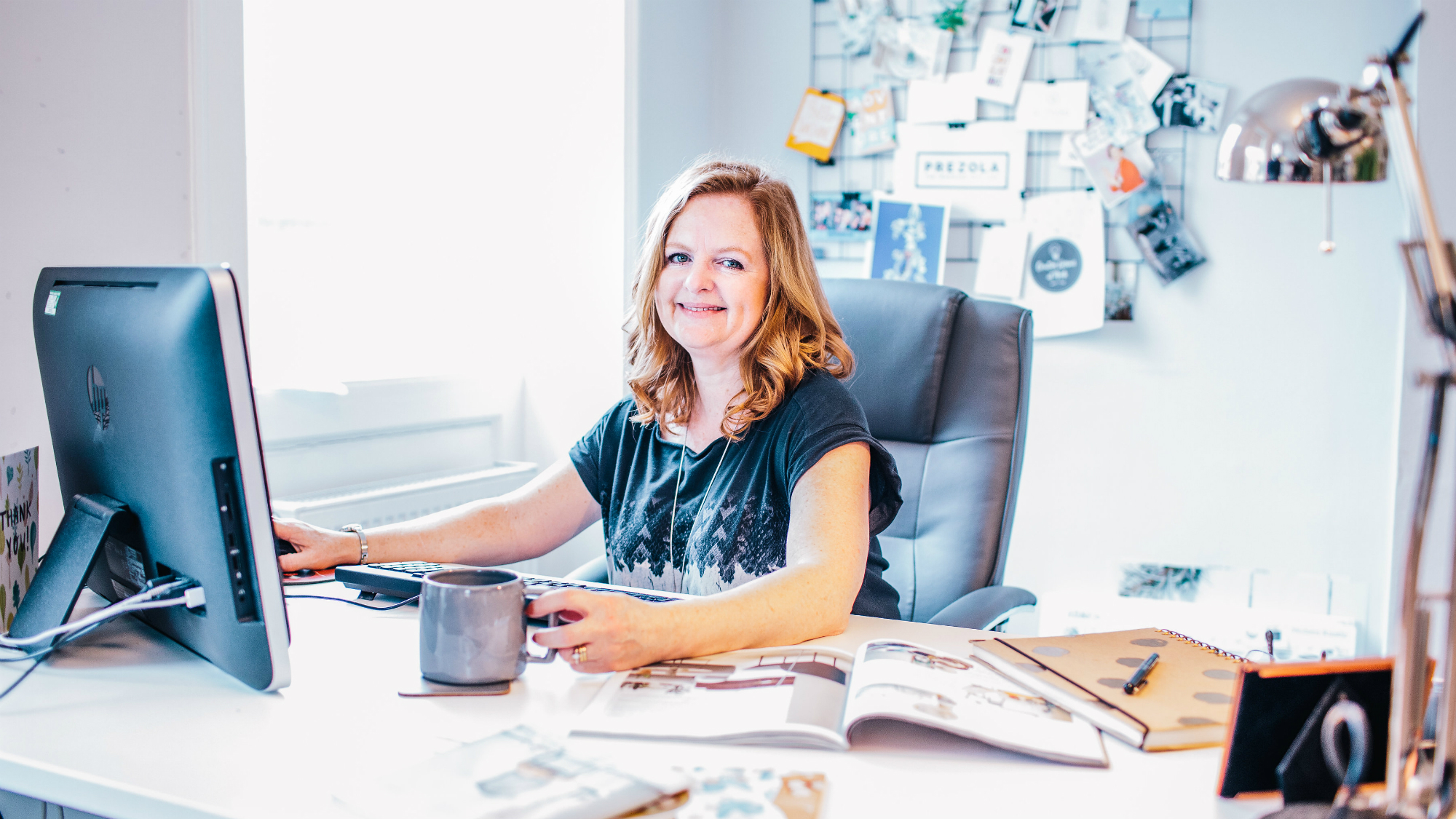 Ali Beaven: 'Be worth what you’re asking for and confident in commanding it'
Ali Beaven: 'Be worth what you’re asking for and confident in commanding it'Female tech founder Ali Beaven is next in our Women Who Win series, giving us some insight into how tough you have to be to hack it as a woman in the tech industry...
By Jenny Proudfoot
-
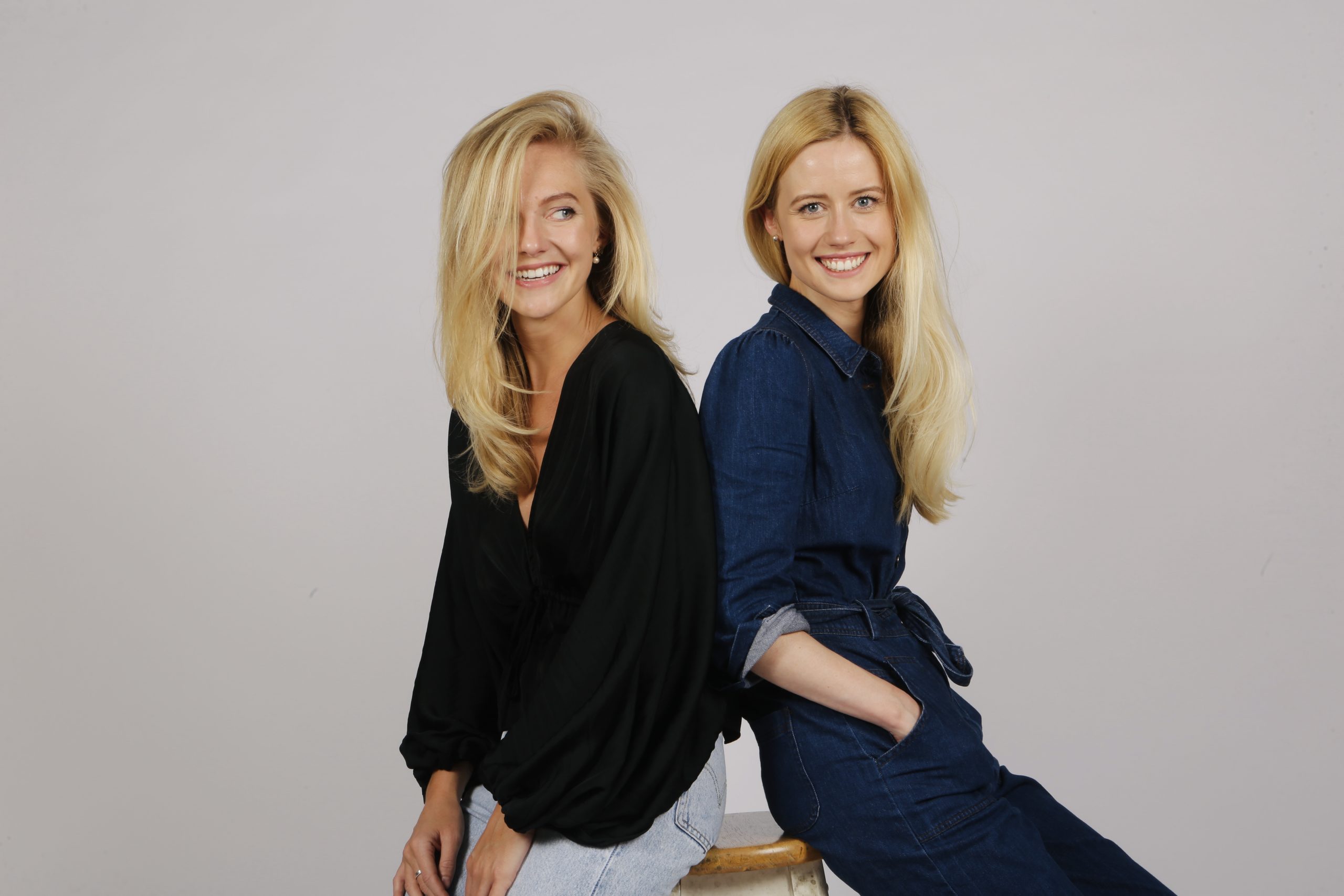 Rosie Gunn and Hannah Johnston talk Endless Wardrobe, sustainable fashion and the power of hard work
Rosie Gunn and Hannah Johnston talk Endless Wardrobe, sustainable fashion and the power of hard workNext in our Women Who Win interview series are Rosie Gunn and Hannah Johnston, the power duo behind Endless Wardrobe...
By Jenny Proudfoot
-
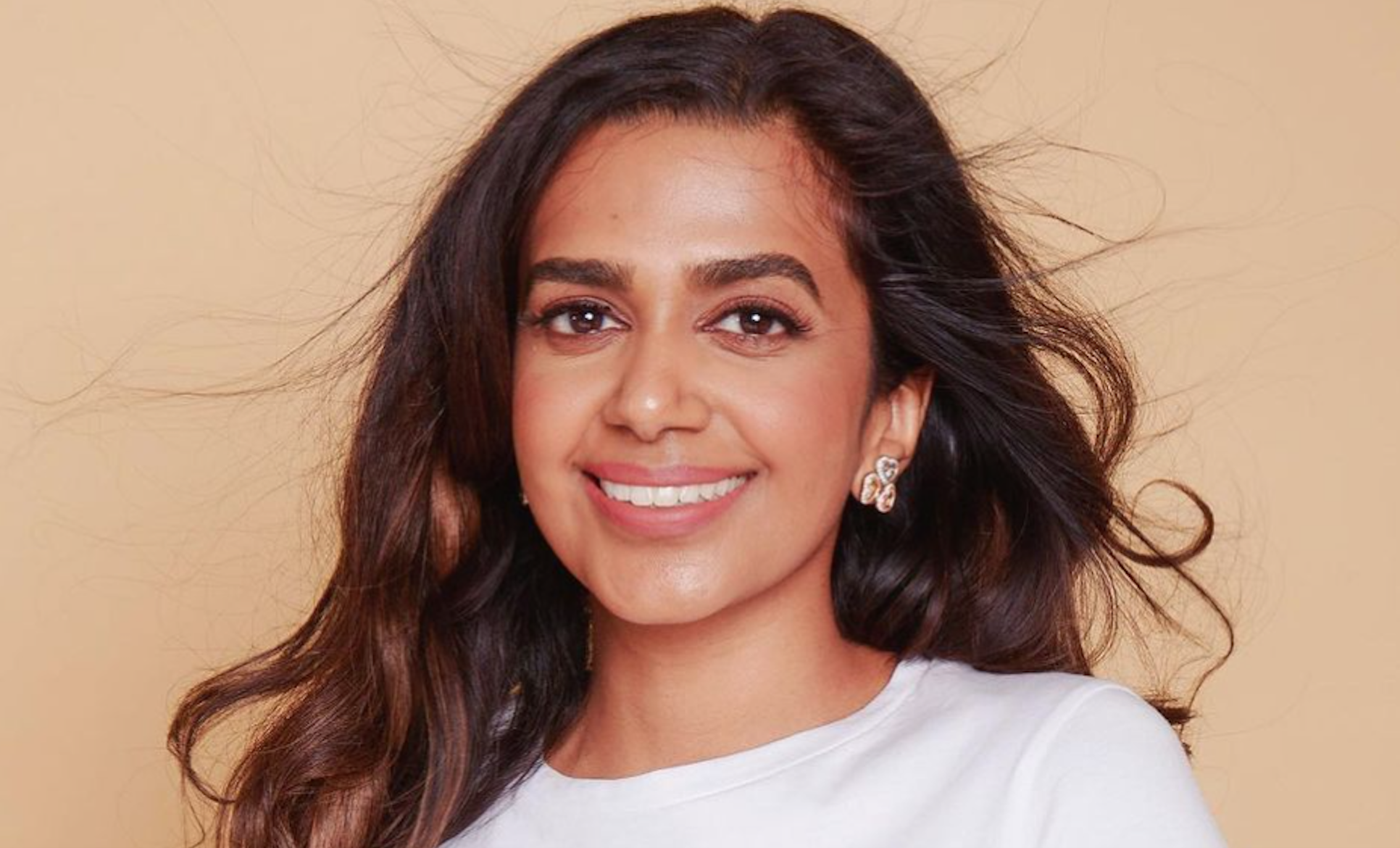 Nikita Mehta: 'Women bring compassion to leadership which is exactly what our planet needs'
Nikita Mehta: 'Women bring compassion to leadership which is exactly what our planet needs'Next in our Women Who Win series is Nikita Mehta, the visionary behind Fable & Mane...
By Jenny Proudfoot
-
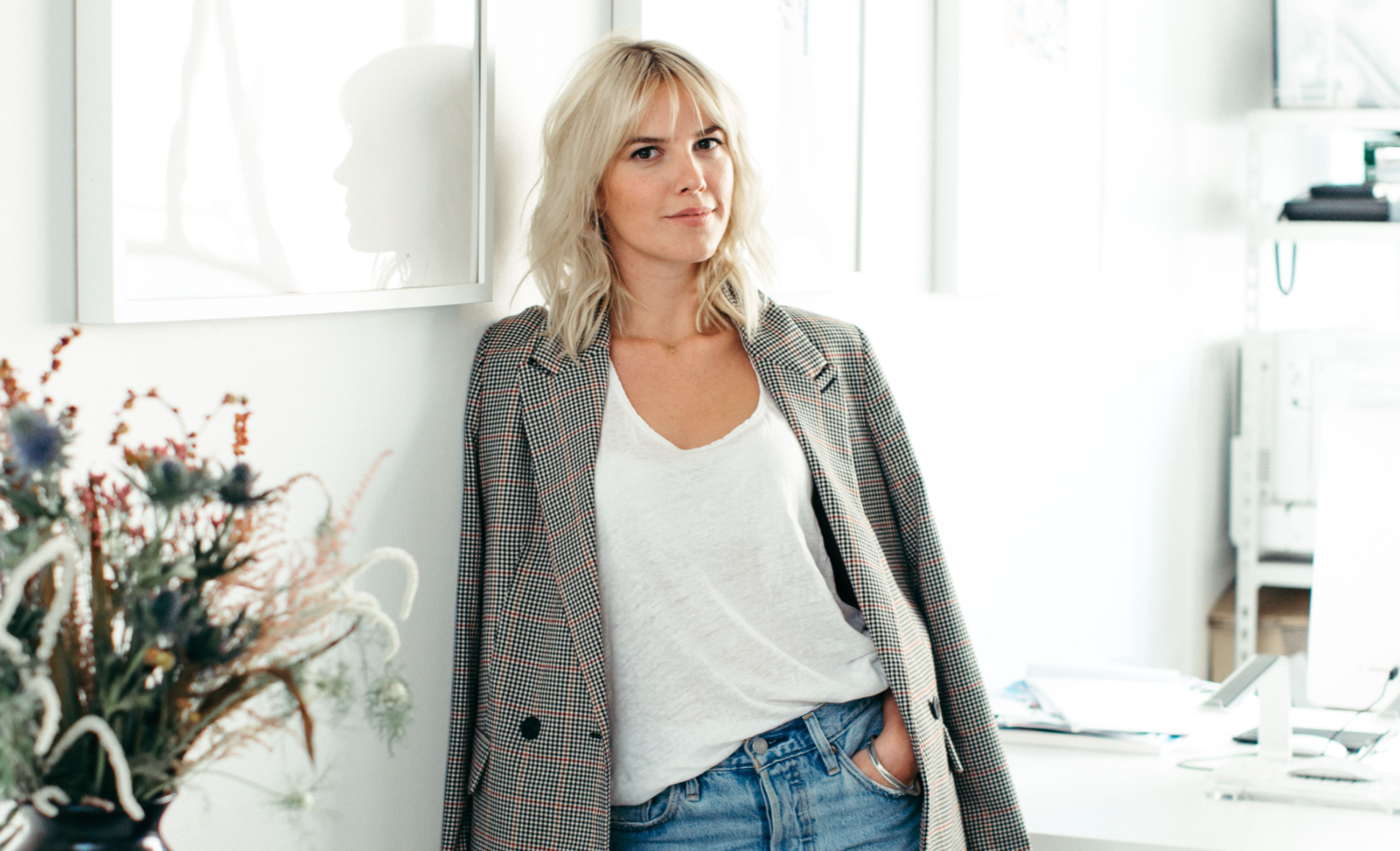 Molly Goddard talks Desmond & Dempsey, pivoting during COVID and the best advice she's ever received
Molly Goddard talks Desmond & Dempsey, pivoting during COVID and the best advice she's ever receivedNext in our Women Who Win series is Molly Goddard, co-founder of luxury UK pyjama brand, Desmond & Dempsey...
By Jenny Proudfoot
-
 Irene Forte: 'All women have the capability to become empowered leaders'
Irene Forte: 'All women have the capability to become empowered leaders'By Jenny Proudfoot